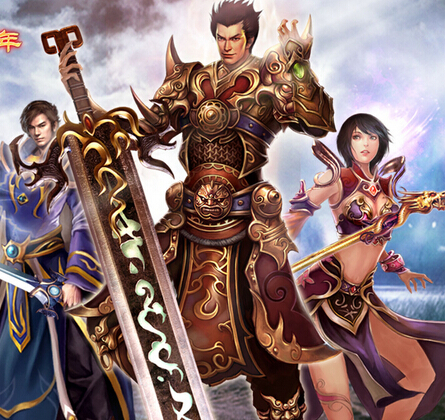十年专注于新开变态传奇私服发布网站
七七游戏网
- admin 2024年9月7日0
chuanqisifu: Understanding the Cultural Significance and Interpretation of Chuanqi in Chinese Literature
Chuanqi, a term that translates to "transmission of the marvelous," holds profound cultural significance in Chinese literature. Specifically, the word "chuanqisifu" highlights the rich tapestry of storytelling traditions that have been passed down through generations. This unique literary genre, often filled with fantastical elements and profound moral lessons, is an essential part of Chinas cultural heritage. Chuanqisifu narratives often feature intricate plots, elaborate characters, and an underlying philosophical commentary that reflects the values of Chinese society. These tales serve not only as entertainment but also as a means of moral education, preserving wisdom and cultural identity amidst the ever-changing dynamics of history.
In examining Chuanqi, one can appreciate the depth of its themes and the artistry with which it is crafted. The narratives often draw from pivotal moments in history, mythology, and folklore. This genre has successfully encapsulated the ideals of Confucianism, Daoism, and Buddhism, intertwining them in a narrative that is both approachable and thought-provoking. Moreover, the rich symbolism present in chuanqi allows for various interpretations, inviting readers to engage with the text on a deeper level. As such, the term "chuanqisifu" not only references the genre but also speaks to the broader cultural implications of how these narratives influence Chinese thought and societal values.

Exploring the Elements of Chuanqi Stories
The structure of chuanqi stories is characterized by several key elements that distinguish them from other literary forms. First and foremost is the narrative arc, often involving a hero or heroine navigating challenges that test their moral integrity, wisdom, and strength. This journey not only brings excitement and suspense but also serves as a metaphor for personal growth and ethical dilemmas faced in everyday life. Furthermore, the use of vivid imagery and intricate details enhances the readers experience, transporting them into a world where the boundaries between reality and the extraordinary blur.
Another element intrinsic to chuanqi is the interplay between fate and free will. Characters often confront obstacles that seem preordained, yet their personal choices significantly influence the outcomes of their journeys. This duality mirrors real-life situations where individuals must navigate societal expectations, familial obligations, and personal aspirations. As a result, readers may find reflections of their struggles within these stories, making them more relatable and impactful. Ultimately, chuanqi acts as a vehicle for not just storytelling, but for teaching valuable life lessons that resonate across ages, cultures, and personal experiences.
Q&A Section
Q: What are the main themes found in chuanqi literature?
A: The main themes in chuanqi literature often include the exploration of morality, the tension between fate and free will, and the importance of personal integrity. Through fantastical tales, writers illustrate the complexities of human nature and societal expectations, providing insights into ethical dilemmas and personal growth.
Q: How has chuanqi influenced modern Chinese storytelling?
A: Chuanqi has significantly influenced modern Chinese storytelling by providing foundational elements that are still prevalent today, such as character dilemmas, moral lessons, and the blending of realism with fantasy. Contemporary writers draw inspiration from these classical narratives to create works that resonate with modern audiences while maintaining the traditional storytelling techniques that define the genre.
文章内容页下在线分享
chuanqisifu: Understanding the Cultural Significance and Interpretation of Chuanqi in Chinese Litera
Powered By 2020-2025 Theme By 网站地图
评论列表: